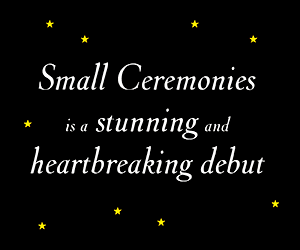The human tendency towards heated debate is part of our evolutionary heritage. It’s almost always been advantageous to get absurdly mad about even trivial issues; where the cool-headed rationalist might shrug off a debate about ideal loin cloth material and retire to his cave for a rest, the belligerent hothead is far more likely to sneak into his cave in the dead of night and choke the life out of him with his hideously impractical palm frond underoos. This has obviously been mitigated in the last several thousand years of polite society, where you've increasingly needed to at least have more social capital before murdering someone in cold blood, but you can see the latent tendency in arenas like the Internet, which have removed the more direct methods of social stigma, and let us indulge our angry inheritance.
*
The second edition of the Festival of Bad Ad Hoc Hypotheses took place last weekend at MIT (with a West Coast version fest going this weekend). Organized by Saturday Morning Breakfast Cereal cartoonist Zach Weinersmith—the entire idea has its roots in a gag strip he wrote—the event features scientists and other interested academics advocating for their own particular Bad Ad Hoc evolutionary ideas, theories of how or why something has come to be, absent any evidence that doesn’t come from their own minds. Weinersmith’s original was a dissection of how babies came to be hairless and aerodynamic because of ancient practices that involved punting them from village to village (the better the babies flew through the air, the better they spread their genes). Last weekend’s event featured discussions on everything from why bugs continue to get more disgusting (as humans burn through protein sources, they need to discourage us from considering them edible) to the growing prevalence of smugness in the population (people with less self-satisfaction tend to have higher suicide rates, thus taking themselves out of the gene pool).
Its basic set-up is a parody of scientific conferences—SMBC itself is one of a handful of web comics that has found a lot of success in exploring the dissonance between the scientific-academic view of the world and the common sense/ignorant one—and, generally speaking, the presentations that tend to go over best are the ones that master the vagaries and hand-waving of the slapdash hypothesizer. Evolutionary academics, especially those who try to explain some aspect of human behaviour through a Darwinian lens, seem particularly prone to being seduced by a story well told, so there’s lots of fodder. Set up like lower rent TED Talks, the laughs—this is all meant to be quite funny, albeit in the way that most of the jokes your high school physics teacher told you are funny—tend to a follow the most knowing jokes, as when the bug hypothesizer didn’t have the time to get into the particulars of his computer modelling of the future of bugs, and then presented a fully rendered model of a hideous monster on a dinner plate. It’s funny because people ignore the boring technical details for the flashy final picture all the time!






